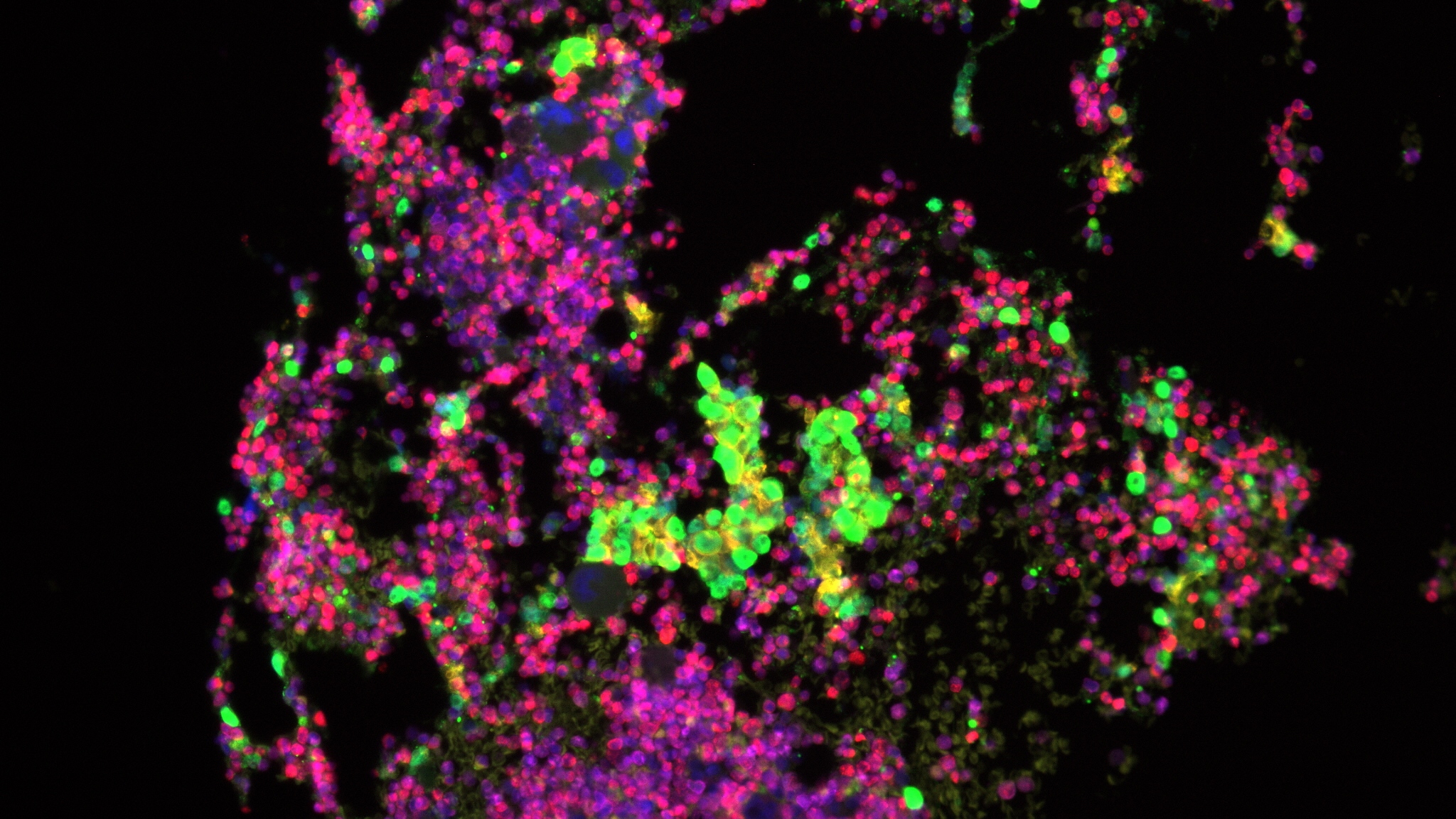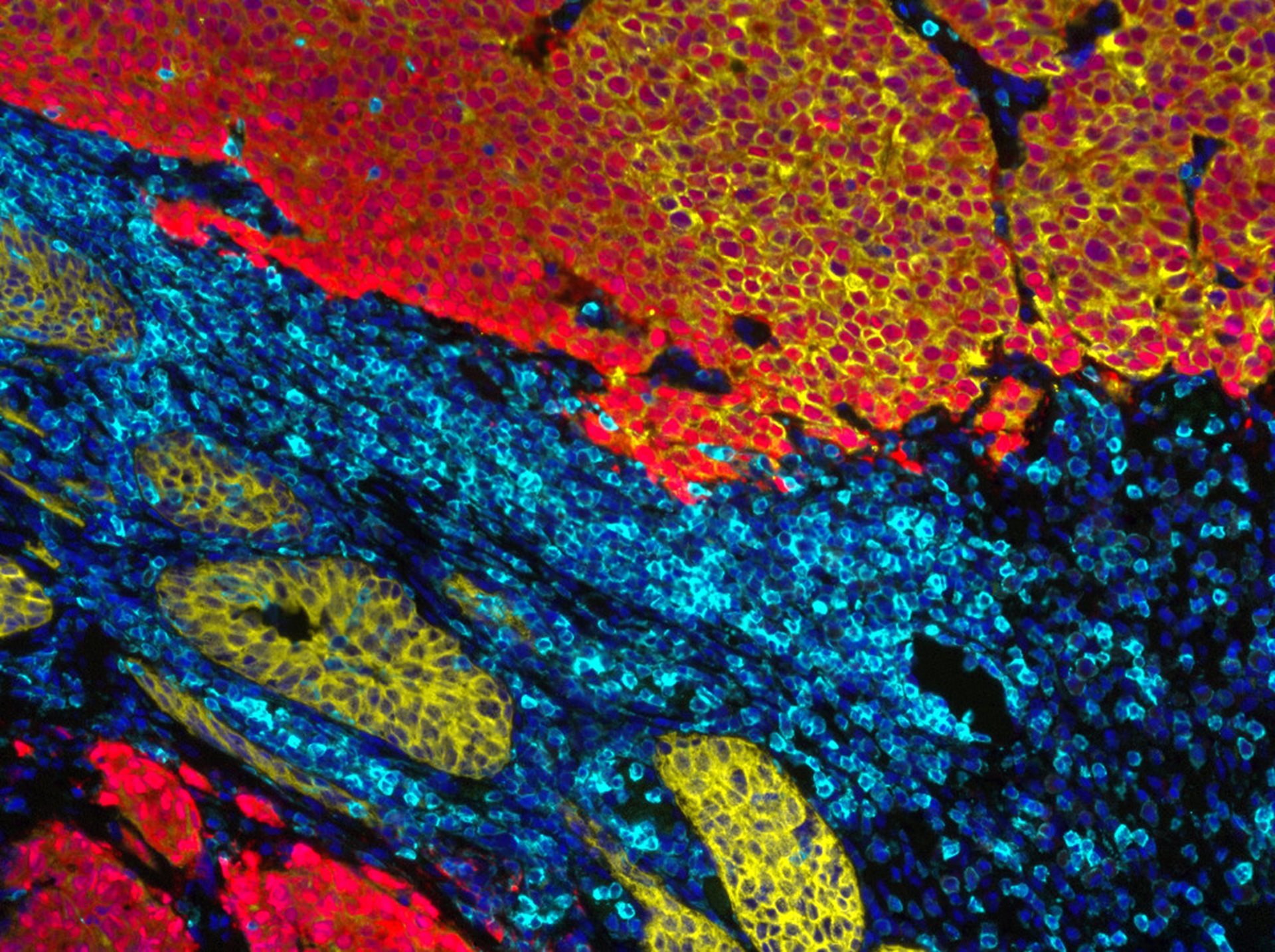Our research into prostate cancer
Our Movember Centre of Excellence brings together leading researchers to improve outcomes for people with prostate cancer.
Our progress against prostate cancer
Abiraterone
We discovered the drug abiraterone (Zytiga) – now a mainstay of treatment for advanced prostate cancer across the world. Along with our partner hospital The Royal Marsden, we ran clinical trials to establish its effectiveness, both post-chemotherapy and earlier during treatment. Professor Nick James led the ground-breaking STAMPEDE trial, which showed that offering abiraterone earlier can boost survival. Read our feature on abiraterone.
When I was diagnosed in 2012, I didn’t think that I would still be alive after 11 years.
Thanks to abiraterone I have been well enough to travel abroad as much as I want to, see my grandchildren grow and go to my daughter’s wedding in Germany. Not a bad life for someone with advanced prostate cancer!
- Rob Lester.
Precision medicine
Precision medicine gives patients the best treatments according to the genetic profile of their cancer. One recent example of this is the drug olaparib, currently used to treat ovarian cancer, thanks to our scientists who played a major role in developing olaparib .
But further trials led by Professor Johann de Bono have shown that olaparib could also work in prostate cancer , for men whose tumours have mutations in specific genes.
Clinical trials
Professor Johann de Bono and Professor Nick James are leading clinical trials of new prostate cancer treatments.
Our researchers, in partnership with The Royal Marsden, have also worked on trials of enzalutamide (Xtandi) and radium-223 (Xofigo) , as well as in ongoing trials of experimental prostate cancer drugs. See more information below.
Genetic testing
Professor Ros Eeles analyses the DNA of men with and without prostate cancer to try to find genetic clues about the disease. Her team has found around 100 genetic factors that influence a man’s chance of developing prostate cancer, or developing a more aggressive form.
These differences in DNA give researchers clues about the disease’s biology that could lead to new treatments, as well as helping identify who has a genetic predisposition to prostate cancer.
Radiotherapy
We are a pioneer in developing new forms of radiotherapy for prostate cancer treatment. An example of our success in radiotherapy research is the CHHiP trial , which showed that fewer, larger doses of radiotherapy were just as effective as the standard regime.
Your support helps
Please donate today to help more people survive prostate cancer.
Prostate cancer discoveries

Simple spit test could finally turn the tide on prostate cancer
.jpg?sfvrsn=999b1809_2)
